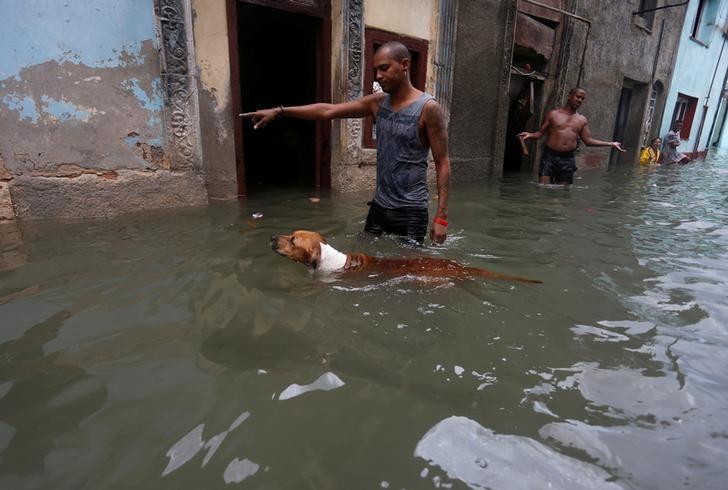
HAVANA, (Reuters) – At least 10 people were killed in Cuba by Hurricane Irma, most of them crushed by collapsing buildings, authorities said on Monday, bringing the death toll from the ferocious storm to 38 in the Caribbean.
Seven of the dead were in the province of Havana, while fatalities also were reported in Matanzas, home to the tourist resort of Varadero, and the regions of Ciego de Avila and Camaguey farther east, according to a statement from civil defense authorities.
The death toll underscores the violence of the storm, which crashed into Cuba late on Friday as the first Category 5 hurricane to make landfall on the island since 1932, state media reported.
The eye of the hurricane scoured the islands on Cuba’s northern coast. Even its outer reaches were powerful enough to send waves of up to 36 feet (11 meters) chasing into Havana’s historic seafront boulevard on Sunday.
Two of the victims died in Central Havana, infamous for its creaking infrastructure, when a balcony came crashing down onto the bus they were traveling in. Authorities attributed two other deaths to a collapsed roof and three to building collapses.
Irma, which had winds of more than 160 mph (260 kph) by the time it reached Cuba, progressed for some 200 miles (322 km) along the island’s northern shore, before the eye of the storm turned northward on Sunday to batter Florida.
Its winds tore off roofs, felled trees and downed electricity poles, causing flooding in many coastal towns including the capital Havana and leaving millions without electricity.
State media said on Monday Irma had seriously damaged Cuba’s already dilapidated sugar industry, flooding and flattening an extensive area of sugar cane.
“Given the immensity of its size, practically no region escaped its impact,” Cuban President Raul Castro said in a statement published in state-run media on Monday.
“This meteorological phenomenon caused severe damage to the country, which we have not yet been able to measure given its size,” he said. “A preliminary survey shows it has impacted housing stock, the electric system and agriculture.”
While many of Cuba’s top resorts out on the northern islands took a direct hit from the hurricane, Castro said they would be fixed up in time for high tourist season at the end of the year.
“The task we have before us is immense but with a people like ours, we will win the most important battle: the recovery,” Castro said.
